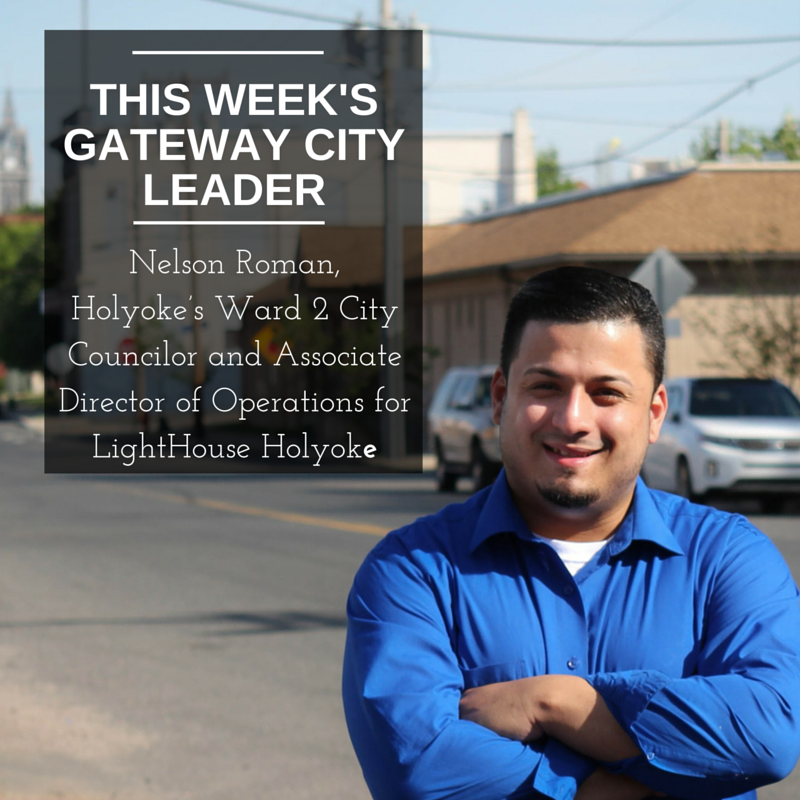The front cover of last Sunday’s Boston Globe drew attention to how rising income inequality is leading to increasing segregation of residents by income. While this phenomenon raises many concerns, nowhere is the effect more problematic than in the classroom. As income disparities grow, increasing numbers of disadvantaged students are being asked to learn in schools with insufficient resources. When youth lack opportunity and support to achieve in school, they fare worse in the job market as adults. This widens the income gap that is already tearing at the fabric of our Commonwealth.
Gateway City educators are on the frontlines of the battle to erase the hard line between where a child lives and the quality of the learning opportunities they receive. To chart a common strategy, they came together four years ago at Clark University. The blueprint they produced called for increasing access to early learning, expanding the school day, working hard to better serve newcomers, nurturing the social-emotional skills that are critical to lifelong well-being just as meticulously as we focus on academic skills, and ensuring that all students are on a pathway to college and career success.
Ground has been made on each of these fronts, but there is still a great distance to go. In order to build the will necessary to put in place policies that will enable Gateway City educators to get to their vision, it is critical that Massachusetts residents appreciate the threat that income inequality places on our shared economic future. There has been no more compelling voice on this issue than Senator Elizabeth Warren.
On Monday, Senator Warren will join Gateway City leaders at Clark University to speak about the recent passage of the Every Child Succeeds Act. Expressing support for the bill in a floor speech, Senator Warren recalled President Johnson’s words when he signed the first federal education law in 1965. “Education is the only valid passport from poverty” he emphasized. Come to Clark on Monday to hear Senator Warren and a panel of leading education thinkers challenge us to take advantage of the opportunities this new federal law provides to achieve our vision and ensure that we give all Gateway City students the passports they will need to fulfill their aspirations.
– Ben Forman

Housing & Economic Development
Fall River approves a plan to create a district for Housing Development Incentive Program (HDIP) tax credits.
Plans are announced to convert a vacant building in New Bedford into a boutique hotel.
MassDevelopment gives its monthly update on their Transformative Development Initiative, including useful new data on the program and upcoming events.
Check out video of Haverhill TDI Fellow Noah Koretz in the Haverhill Journal. The Item speaks with Lynn TDI Fellow Joe Mulligan.
A local real estate developer looks to build market-rate apartments in downtown Springfield.
Worcester’s economy is benefiting from the Innovation Economy. Governor Baker has high hopes for his $920 million economic development bill that is currently in front of the legislature.
Lt. Governor Karen Polito and Haverhill Mayor James Fiorentini sign a Community Compact agreement, enabling the city to receive economic development assistance from the state in exchange for adopting best practices.
The Mashpee Wampanoag tribe is planning to break ground on its proposed Taunton casino in April despite litigation questioning its legal right to do so.
New Lowell Mayor Ed Kennedy pushes for a business improvement district downtown.
Newly constructed apartments at Lewis Latimer Place in Chelsea will provide homes for at-risk or high-risk young pregnant or parenting families.
It’s almost tax time. Governing looks at how Louisville, KY makes increasing the financial well-being of residents an economic development strategy. Years ago this was the focus of a MassINC Gateway Cities report.
A bill that would provide grants for summer education programs in urban areas receives support from Worcester CityManager Edward Augustus, Salem Mayor Kim Driscoll and New Bedford Mayor Jon Mitchell.
Chelsea Superintendent Mary Bourque makes the case that Chapter 70 funding does not reflect the true costs of educating disadvantaged students in Gateway Cities at a recent special state Joint Ways & Means Committee Hearing in Everett.
The Quincy teachers union signs a five-year agreement with the city calling for a 10 percent pay raise over that time period.
A tentative agreement has been reached for community college faculty and staff in Massachusetts, including salary increases, provisions around teaching assignments and learning outcomes assessment.
Governance
Three new state representatives are sworn in, including Rep. Thomas Walsh of Peabody, Gerard Cassidy of Brockton, and Stephan Hay of Fitchburg.
Bloomberg adds six new cities to its open data initiative.
Transportation
Mayor Kim Driscoll of Salem and Senator Ben Downing of Pittsfield were joined by former Indianapolis Mayor Greg Ballard and transportation leaders at the State House to discuss legislation that would let Massachusetts municipalities and regions raise their own taxes for transportation improvements.
A Salem News editorial supports the construction of a new MBTA stop in south Salem.
Community Health
Brockton is awarded a $425,000 grant to educate local youth about the dangers of abusing prescription painkillers.
Holyoke’s City Council considers leasing space in the City Hall Annex to the state at no cost for services related to the Veterans’ Treatment Court, which aims to keep veterans out of jail and instead direct them to services for problems like post-traumatic stress disorder, brain injuries and trauma.
A report by the University of Massachusetts Medical School examines the 200,000 people in the state without health insurance.

